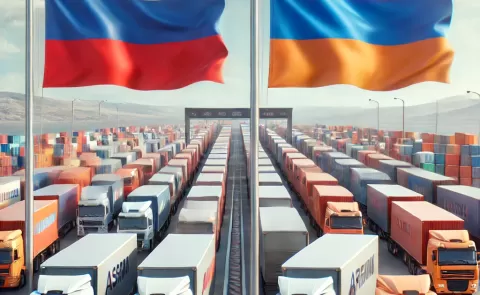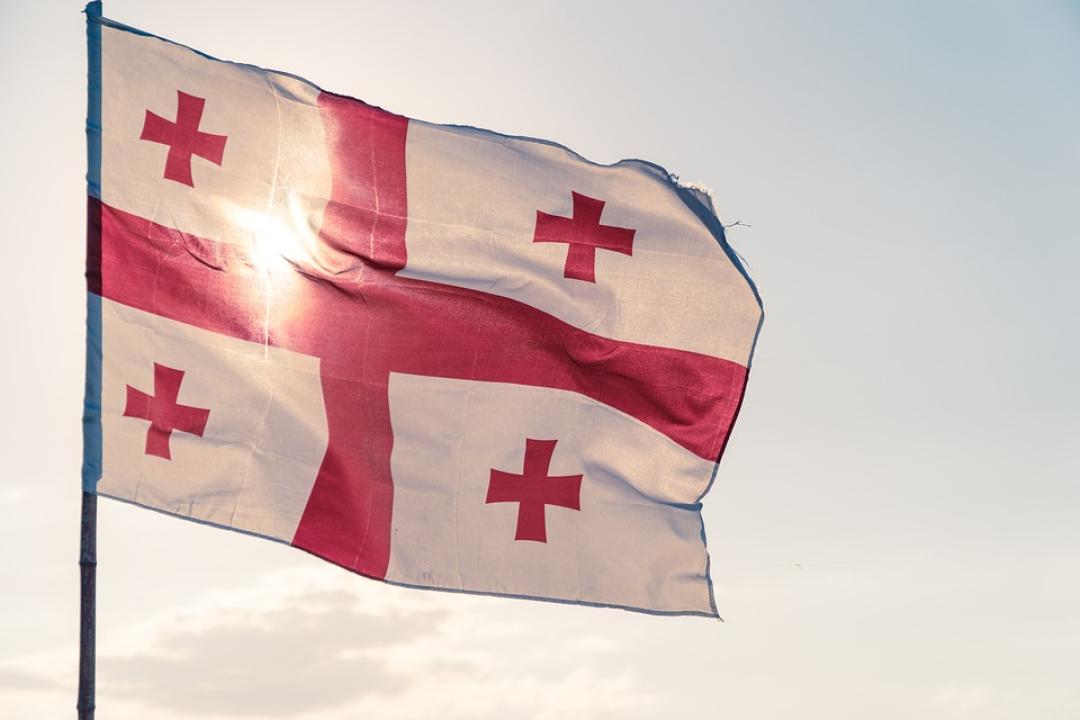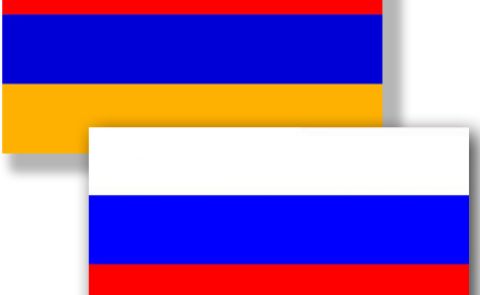
Street Protests Against Foreign Agents Law Continue in Georgia

On May 12, 124 Georgian civil society organizations issued a joint statement declaring that the draft Law on Foreign Agents is similar to Russian legislation in its aims and content. They stressed that it posed a threat to Georgia's pro-Western course and called for its unconditional withdrawal. The statement emphasized that no amendments could mitigate the expected negative impact on Georgian society. "The Georgian people have vehemently rejected the imposition of Putin's norms through this Russian-inspired law," the CSOs said, highlighting the significant turnout at the May 11 demonstrations. They insisted that Georgian citizens understood the nefarious aims behind the law and stood firm against the government's attempts at intimidation and unwavering support for the country's Western orientation. The statement concluded with a resounding call for the government to withdraw the law immediately.
During the May 12 press conference, Prime Minister Irakli Kobakhidze announced that US Assistant Secretary of State Jim O'Brien, who was scheduled to visit Tbilisi on May 14, had requested a meeting with Georgian Dream honorary chairman Bidzina Ivanishvili. Ivanishvili, however, declined the meeting, citing the contentious issue of "sanctions" as central to the matter. Kobakhidze devoted a significant portion of the briefing to Ivanishvili and alleged sanctions against him, noting that neither the United States nor the European Union had imposed any legal or financial sanctions on Ivanishvili. In response to questions about possible sanctions influencing the withdrawal of the Foreign Agents Law, Kobakhidze highlighted instances in which Ivanishvili had declined meetings with foreign diplomats and politicians, citing perceived de facto sanctions. He emphasized Ivanishvili's stance on the issue, asserting that no external pressure or threats could force him to act against the state. Kobakhidze reiterated familiar messages about safeguarding Georgian sovereignty and asserted resistance to foreign directives reminiscent of Soviet influence. He referred to the alleged influence of the "global war party" on Western powers and their agenda in Georgia, along with claims of significant public support for the Foreign Agents Law. As a result, he reiterated the parliament's intention to pass the law in its third and final reading during the plenary session.
At 22:00 [local time] on 12 May, protesters reconvened on Rustaveli Avenue for an all-night sit-in in front of the Parliament of Georgia. Throughout the night, the demonstrators braved the inclement weather and intended to maintain their presence until the morning, coinciding with the committee hearing scheduled for 9 a.m. However, at around 6 a.m., the police launched a forceful crackdown, using water cannons to disperse the peaceful protesters from the entrances to the parliament.
On May 13, the Parliament's Legal Affairs Committee quickly voted to approve the Foreign Agents Law in its third and final reading, amid ongoing public protests. The vote, which lasted only 55 seconds, took place as most opposition MPs were delayed by law enforcement and Georgian Dream representatives were not fully present. At the same time, the committee met amid overnight protests marked by instances of police brutality and arrests.
The Ministry of Internal Affairs reported that 20 people, including three foreigners, were arrested during the overnight protest against the Foreign Agents Law. Charges included petty hooliganism and disobeying police orders. Despite repeated calls by law enforcement to disperse, some demonstrators defied orders, leading to confrontations and subsequent arrests.
Four members of the European Parliament sent a letter to Josep Borrell, the European Union's High Representative for Foreign Affairs and Security Policy, calling for targeted sanctions against Georgian figures who are pushing the country away from its European aspirations. They urged Borrell to consider suspending high-level engagement with the Georgian government and to explore measures such as recalling ambassadors and redirecting financial aid to support civil society.
In addition, foreign ministers from 12 EU countries requested an oral update from the EU Commission on the impact of Georgia's adoption of the Foreign Agents Law on its EU integration path. Ministers stressed the importance of communicating clear consequences should Georgia proceed with legislation that deviates from EU norms and values, and expressed solidarity with the democratic aspirations of the Georgian people.
On May 13, the chairpersons of the foreign affairs committees of Lithuania, the Czech Republic, Finland, Poland, and the German Bundestag began their visit to Georgia amid the crisis sparked by the ruling Georgian Dream party's push for a foreign agents law. Their first meeting was with representatives of the opposition parties. After the meeting, the opposition members and the chairman of the Bundestag's Foreign Affairs Committee, Michael Roth, addressed the press. Roth emphasized their solidarity with Georgia, reaffirmed the country's place in Europe, and urged the Georgian Dream government to withdraw the controversial Foreign Agents Law. He underlined the bleak prospects for Georgia's future should the law go ahead, and expressed his gratitude for the peaceful demonstrators and their embodiment of European values. When asked about EU accession negotiations, Roth dismissed the possibility if the law were to be enacted, echoing the EU's unequivocal stance against it.
On the same day, the Public Defender of Georgia issued a statement regarding visits to individuals arrested during rallies against the Foreign Agents Law. The statement highlighted instances of alleged excessive force and ill-treatment by law enforcement officials and condemned such actions as violations of democratic principles and individual rights. The Public Defender called for a prompt and thorough investigation into the attacks on opposition members, activists, journalists and protesters, and urged accountability for those responsible.
Peter Stano, the EU's High Representative for Foreign Affairs and Security Policy, condemned the acts of intimidation and violence against anti-graft protesters, journalists, politicians and civil society organizations. He called for the protection of the right to protest and urged authorities to investigate and prosecute any wrongdoing. Regarding calls for targeted sanctions against those who hinder Georgia's European future, Stano clarified that such decisions are up to member states. He underlined the EU's expectation that Georgia will uphold democratic values and commitments on its path towards European integration, and acknowledged the strong desire of Georgians for an EU future. Mr. Stano commended the Georgian people's commitment to EU integration and urged the government to reflect this aspiration by upholding democracy and European values.
See Also


Armenia and Russia Reaffirm Strategic Ties Amid Speculation of Strained Relations

Sergey Naryshkin Accuses Britain of Destabilizing Georgia

Armenia Records 5.9% GDP Growth in 2024, Missing 7% Goal

Yerevan Balances Strategic Ties with Both US and Russia, Says Foreign Minister

